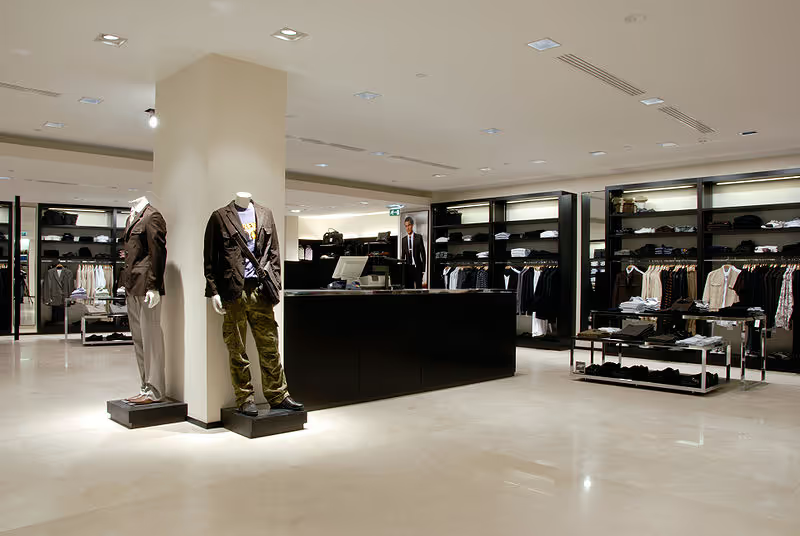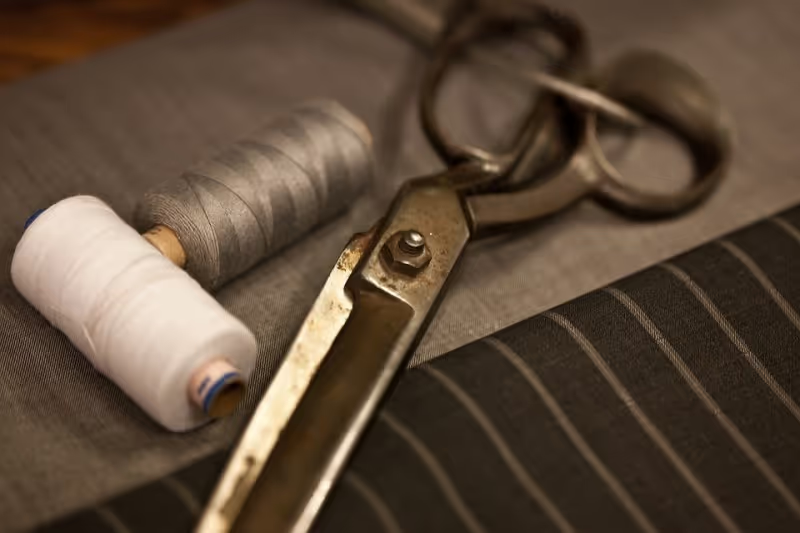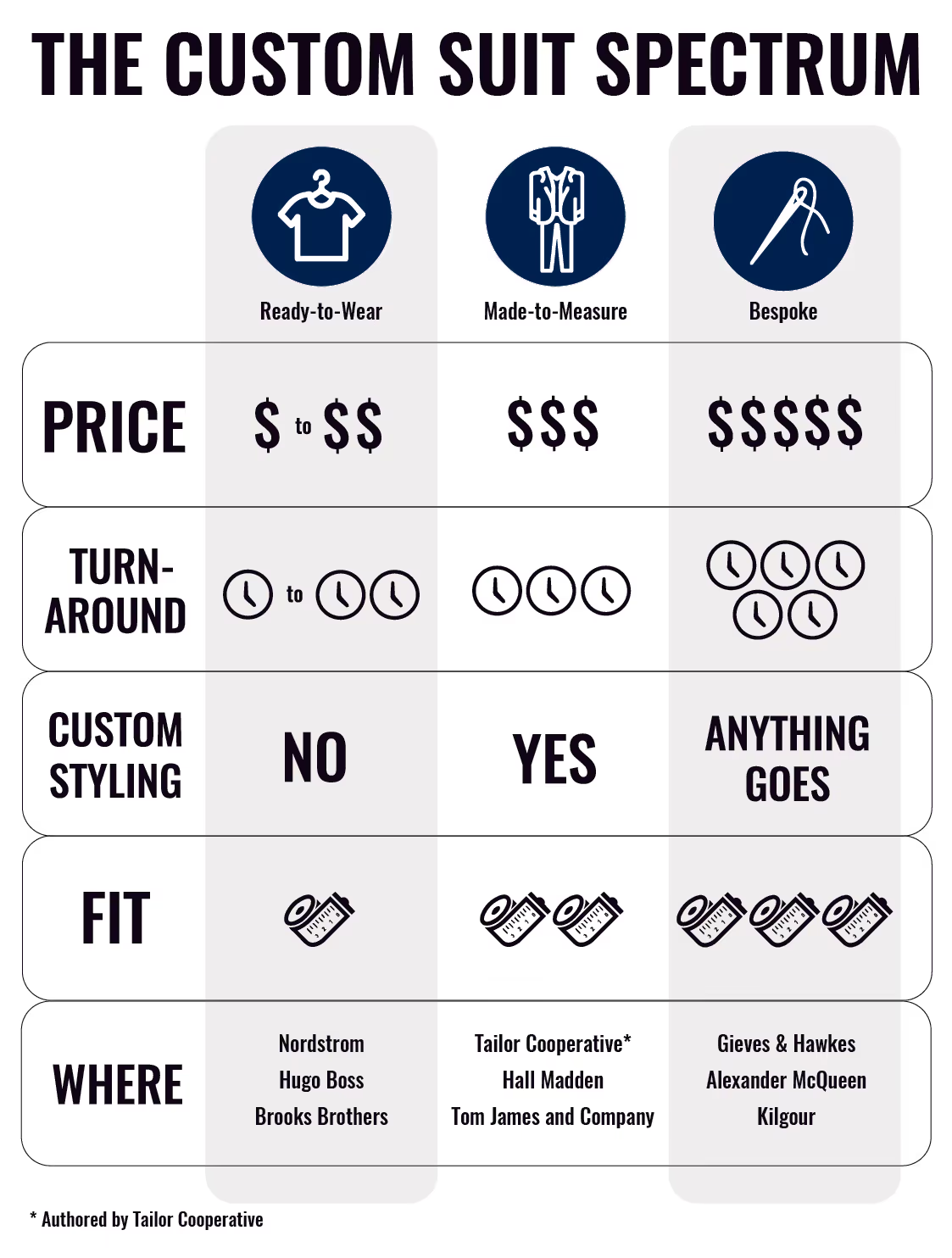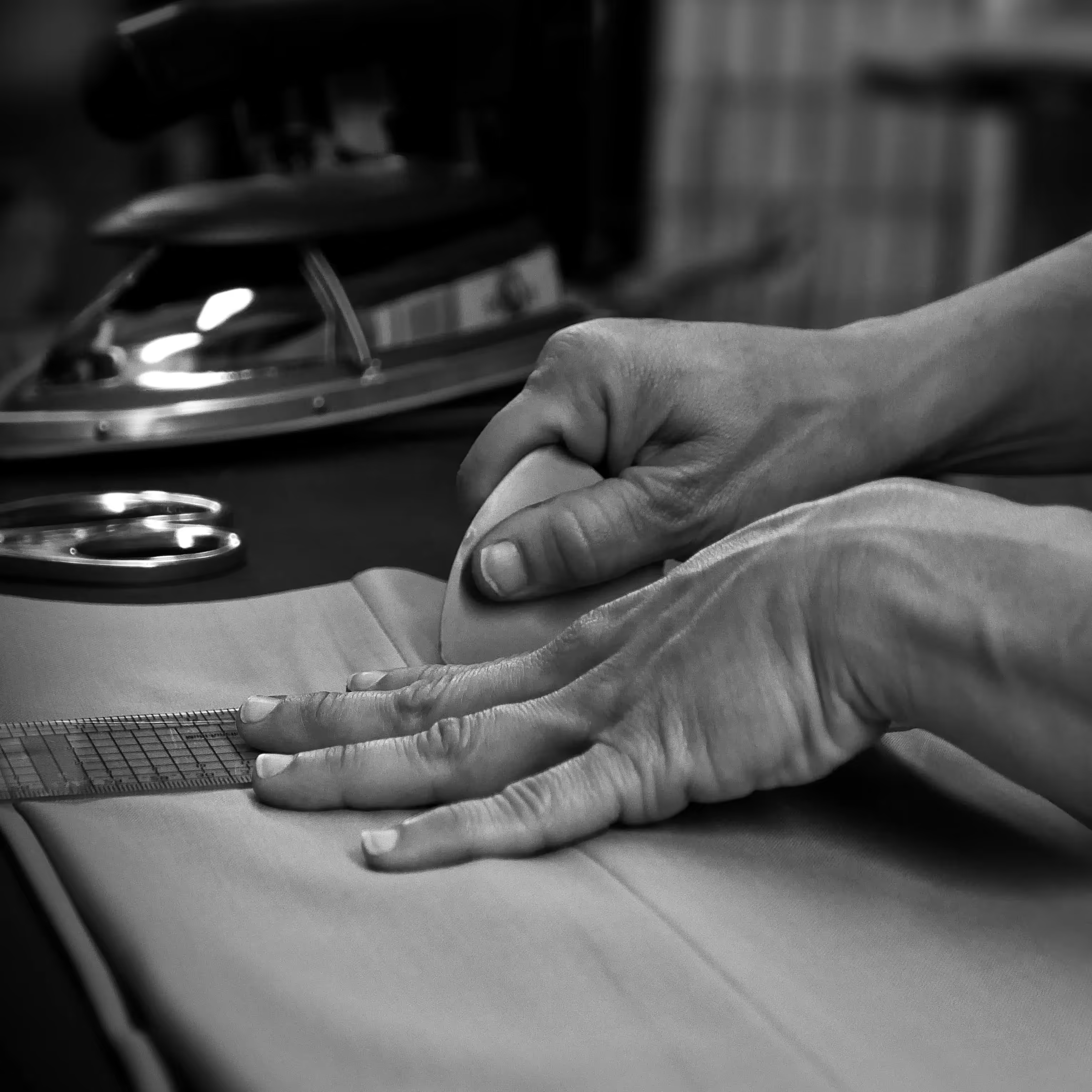From alterations to fully bespoke, custom suits can make a pointed difference to the fit and style of one’s wardrobe, and to the overall confidence level of the day’s ensemble. A plaid milton here. A skull button there. Contrast stitching to subtly catch the eye.
As a rule, cost increases with complexity. A fully custom suit will look just the way you want and will fit incredibly well, but will be much more expensive than one that is ready-made in a standard size. Thus, distinguishing a balanced mix of customizable style options and agreeable price points is key when planning one’s wardrobe.
Most fashion can be grouped into one of three categories: ready-to-wear, made-to-measure, and bespoke. While these are fairly well defined tribes, advances in process, technology and public appetite have caused some cross-pollination. Let’s discuss how the scale slides, shall we?
READY TO WEAR CLOTHING
Also known as off-the-rack or prêt-à-porter, this apparel is found hanging on racks in various retail stores.
The means of production and retail finesse have matured over the years, making ready-to-wear more viable even for fashion-minded shoppers. More styles, more sizes, more options, and the price points are much lower than truly custom clothing. Perhaps most importantly, the clothing is available immediately with no wait.

The chief drawback with ready-to-wear, of course, is that shoppers in a retail setting will be limited to the selection available and to standardized sizes which are rarely a perfect fit for anyone’s body shape.
Ready-to-wear suits only becomes “custom suits” after the fact … if altered by an alterationist. To bridge this gap for their customers, many high-end retailers offer in-house alterations so that the finished product is a closer fit. While a respectable option for those who desire a more tailored look, this increases the ready-to-wear price and doesn’t solve the problem of customized styling.
Pros of Ready-to-Wear
- Lower price-point
- Available immediately
- Alterations optional, for a better fit
Cons of Ready-to-Wear
- Fit will never be perfect
- No opportunity to customize fabrics or components
MADE-TO-MEASURE CLOTHING
Made-to-measure custom suits, on the other hand, are never waiting on a hanger. The client in this case is measured tape-in-hand by an experienced stylist, given a wide choice of fabrics and finishes, and is consulted on the overall look and functionality of the ensemble.

After a number of personal style decisions have been made, the clothing is assembled, likely off-site, and will take more than a few days to be completed. The made-to-measure shop will then invite the client to return for a second (and sometimes third) fitting, after which any necessary alterations are made, and ultimately a flawless fit is delivered.
Related: 10 Distinguishing Features of a Custom Suit
Pricing is typically higher in this category when compared with ready-to-wear (though, alterations will bring ready-to-wear clothing much closer to the made-to-measure price points). Fit tends to be much more exact, due both to the custom measurements process and the fine-tuning.
Another pronounced benefit for the made-to-measure client is the ability to select and match from hundreds of fabrics and components. For instance, a very conservative charcoal blazer could be lined on the interior with something much more whimsical, such as a passport stamp print. An orange button instead of the usual pearl. Accent stitching on the lapel.
The cut and style of made-to-measure clothing is limited only by the shop’s established pattern library: meaning, the tailor is pulling from a wide variety of known styles, rather than building something from scratch. This keeps the pricing very reasonable. However, if one requires something highly unusual, there may not be a pattern available to accommodate.
Pros of Made-to-Measure
- Custom choice of fabrics and components
- Flawless fit
Cons of Made-to-Measure
- Designs limited to extensive but not infinite pattern library
BESPOKE CLOTHING
For these unique requests, the most custom of custom clothing falls into the category of bespoke.
“Bespoke” as a word has come into fashion lately to describe anything of high-perceived, or even snobbish value. So much so that some clever entrepreneurs have had luck selling bespoke water and bespoke wine.

But make no mistake, “bespoke” has a very real and literal meaning in the fashion world: any clothing that is commissioned and made for a specific individual, in a fully custom manner, and to the client’s exacting specifications.
A bespoke tailor will work closely with the client to capture style and vision, and will spend weeks or months creating patterns and bringing that intricate vision to life.
With bespoke custom suits, anything goes…but it also entails a much higher price point, a much lengthier process, and the inherent risk of creating unproven designs.
Pros of Bespoke
- Flawless fit
- Design and style are completely customizable
Cons of Bespoke
- High price-point
- Lengthy process and time investment
CUSTOM MEANS COMFORT
All else aside, the common factors across the custom clothing spectrum are fit and quality. Clothes that fit well and that have been made from quality fabrics are simply more comfortable…that special kind of comfort that includes freedom of movement, breathability, AND looking exactly how one hopes to look.
For savvy dressers seeking that end, custom suits may well be worth the price and wait.
We at Tailor Cooperative invite you to explore our made-to-measure offerings HERE.



